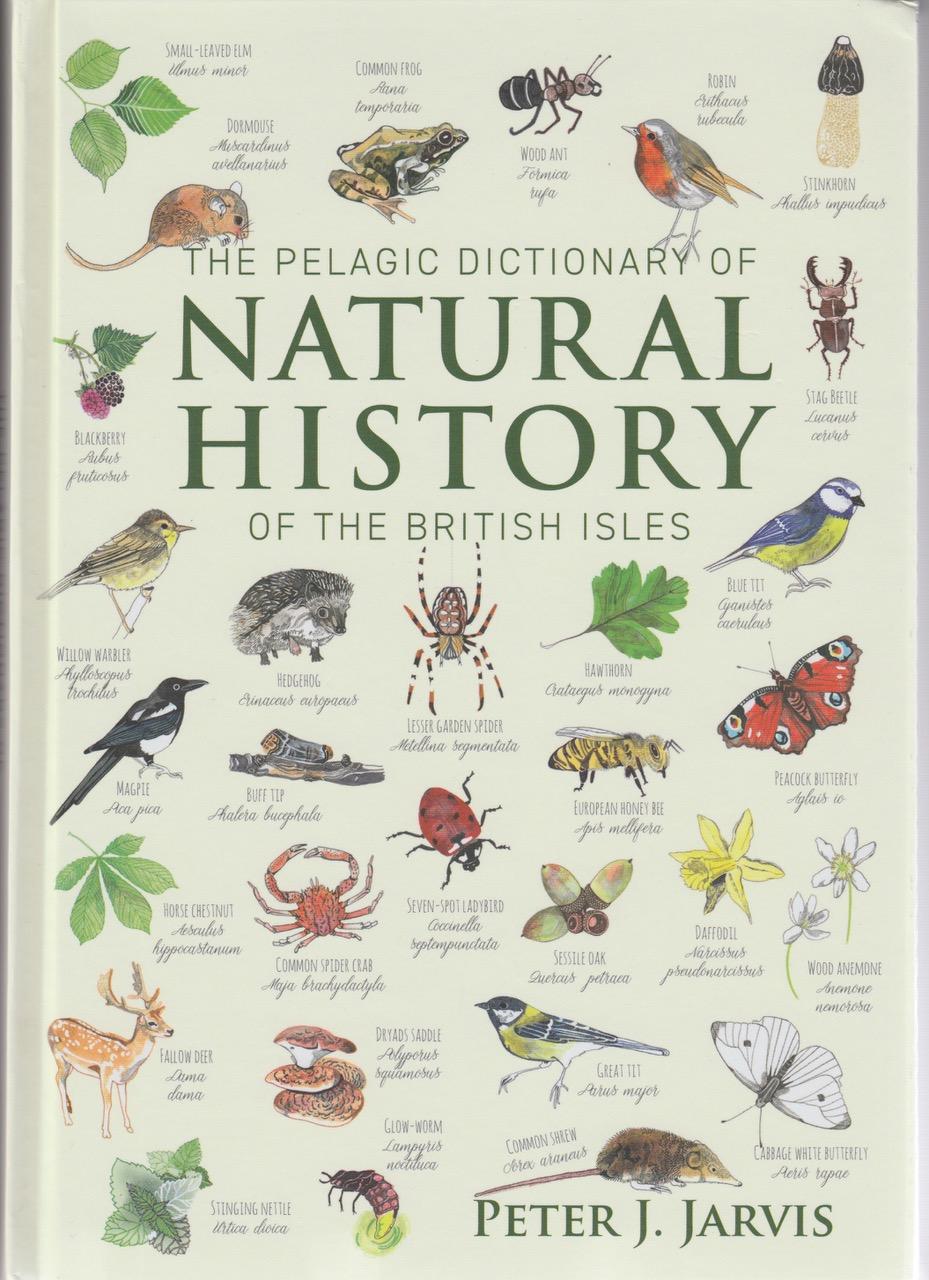Peter J. Jarvis
Pelagic Publishing
2020
ISBN: 9781784271947
Reviewed by Peter Smithers
When this landed on my desk my first thought was, how relevant is a dictionary in the 21st Century when so much is available online? The very concept of a dictionary seemed anachronistic. That was until I opened it. The dictionary is a treasure trove of UK natural history; a distillation of that very British relationship with the natural world. It is an archive of our fauna and flora based on their common names; a volume that is aimed at the naturalist but one that will serve students and scientists equally well.
Part one offers 56 pages of definitions of the terms used in the study of Britain’s natural systems, while part two provides 480 pages that relate to the organisms that are found in the region.There are entries for every taxonomic level, from phylum to species but, as you would expect, not every species appears in this volume. There are, though, entries for all the common and some of the less common insects, and similar coverage for plants, lichens and fungi. Some of the other invertebrate groups are afforded brief introductions but, in a volume of this size, there would not be room for everything, so it’s not surprising that some groups have less detailed entries. Higher taxonomic categories are defined while, at the species level, outlines of the habitat and distribution of the organisms are given along with the etymological roots of the Latin names. The best way to access the information in the dictionary is to look up the highest taxonomic level and follow the references. It is tempting to go straight to a lower level, but much of the information is scattered across the higher taxonomic tiers.
So, is it useful? Yes, it is. Having all of this information condensed into one volume makes it a great starting place to research a new group, or something new encountered in reading or conversation. It is a book that will appeal more to older naturalists, as I suspect that younger people will insist on using their phones to source information. Bibliophiles of any age will love the weight and feel of this book and the now almost nostalgic experience of delving into the dictionary to explore the vast British wildlife. Peter Jarvis is to be congratulated on this herculean undertaking.


